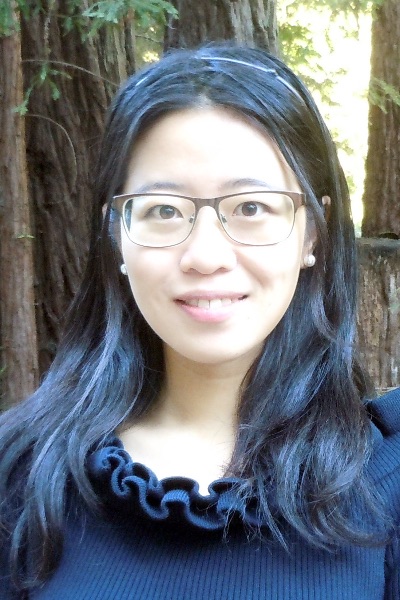In Their Words: Jiayi Xu
Name: Jiayi Xu
Department: Economics
What Scholarship or Award did you receive? Eileen Brooks Memorial Award
What year are you (1st year, 3rd year)? 3rd year PhD student
College: Graduate Division
Where do you call home? China
What is your field of focus? Public policy, applied microeconomics
With all of the choices for college, what made UC Santa Cruz stand out? I think our department has a very strong and diverse faculty team. All the faculties are very nice and supportive. I really enjoy working with them.
What do you hope to do once you graduate from UC Santa Cruz? I want to get a job in research institutions or governments. I hope my research can really solve real world issues and make a better world.
What is one memorable moment that stands out for you as a student here? I think each day here is unique and memorable. For example, the first time of holding a TA session, the first time of making presentations in a workshop and even the first time of watching Santa Cruz Warriors games…
What does this scholarship/award mean to you? I feel really honored. It makes me more confident about my research ability and encourages me to keep working on to achieve my goal. I hope one day that I can help other students in the same way to achieve their goal as well.
For research awards, please include a one paragraph description of your research written for a general audience. The paper is to understand governments’ fiscal behavior when facing revenue shocks. We use the abolishment of an agriculture tax in China as a fiscal shock and analyze how local government budgets’ are affected. To credibly estimate effects, we exploit border discontinuities in the effect of the policy- the tax cut was fully offset by a subsidy in some areas, but not fully offset in other contiguous areas just across provincial boundaries. The research is still ongoing. For now, we find that the tax abolishment reduced local government budgets by 10%, and that local governments reduced expenditures by the same amount - government were not able to raise other taxes in response, for example through more intense tax enforcement.

Department: Economics
What Scholarship or Award did you receive? Eileen Brooks Memorial Award
What year are you (1st year, 3rd year)? 3rd year PhD student
College: Graduate Division
Where do you call home? China
What is your field of focus? Public policy, applied microeconomics
With all of the choices for college, what made UC Santa Cruz stand out? I think our department has a very strong and diverse faculty team. All the faculties are very nice and supportive. I really enjoy working with them.
What do you hope to do once you graduate from UC Santa Cruz? I want to get a job in research institutions or governments. I hope my research can really solve real world issues and make a better world.
What is one memorable moment that stands out for you as a student here? I think each day here is unique and memorable. For example, the first time of holding a TA session, the first time of making presentations in a workshop and even the first time of watching Santa Cruz Warriors games…
What does this scholarship/award mean to you? I feel really honored. It makes me more confident about my research ability and encourages me to keep working on to achieve my goal. I hope one day that I can help other students in the same way to achieve their goal as well.
For research awards, please include a one paragraph description of your research written for a general audience. The paper is to understand governments’ fiscal behavior when facing revenue shocks. We use the abolishment of an agriculture tax in China as a fiscal shock and analyze how local government budgets’ are affected. To credibly estimate effects, we exploit border discontinuities in the effect of the policy- the tax cut was fully offset by a subsidy in some areas, but not fully offset in other contiguous areas just across provincial boundaries. The research is still ongoing. For now, we find that the tax abolishment reduced local government budgets by 10%, and that local governments reduced expenditures by the same amount - government were not able to raise other taxes in response, for example through more intense tax enforcement.
